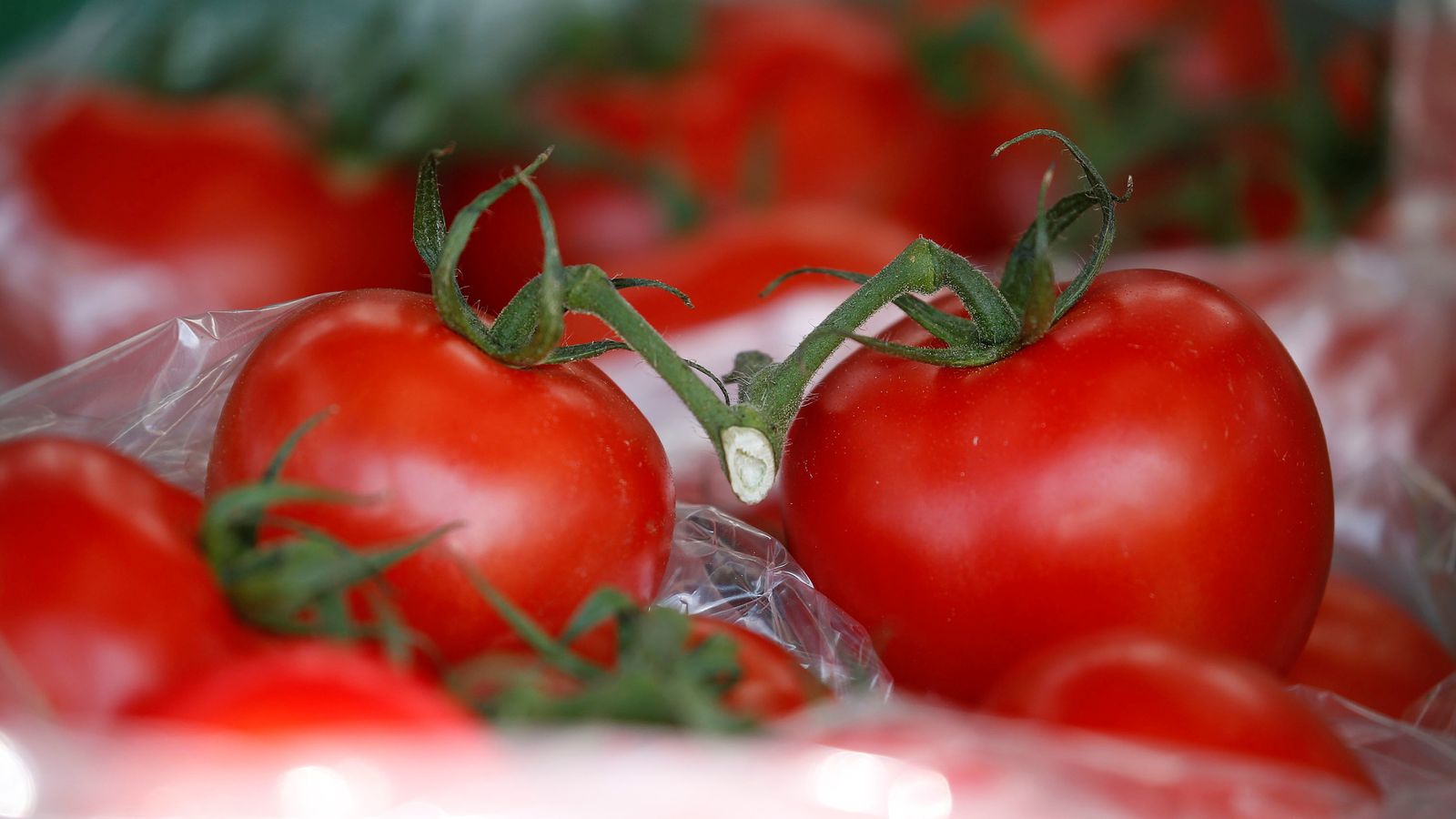The UK needs to “take command” of its own food production, a boss at the National Farmers’ Union (NFU) has said, as the country faces an ongoing vegetable shortage.
Tom Bradshaw, the group’s deputy president, warned that “volatility” from geopolitical events, such as the war in Ukraine, as well as climate change, was putting pressure on supply chains.
He also said that the UK faced the additional challenge of “repositioning” itself with trading partners in the wake of Brexit.
Speaking to Times Radio, he said: “As we reposition ourselves in the world, we’ve left a trading bloc in the EU where we had very good trading relationships, we’ve had to go further afield.
“We see geopolitics, and the war in Ukraine being a tragic example, having huge impacts and I don’t think that unrest is likely to go away in the near future; we seem to live in a very volatile world.
“We’ve then got climate change, compounding all of those issues. What we saw last summer with 40C heat is climate change in action.
“And we have 70 million people living on an island and we have to take responsibility for how we’re going to feed those 70 million people.”
Please use Chrome browser for a more accessible video player
Mr Bradshaw said that imports will “always be a part” of the UK’s food supply.
“But with all of that volatility that’s happening around the world, we need to take command of the food we can produce for ourselves here and make sure that everybody in that supply chain is getting a fair return so that we can continue to provide the food that everybody needs,” he added.
His comments come as Environment Secretary Thérèse Coffey warned on Thursday that shortages of some fruit and vegetables in UK supermarkets could last for a month.
Labour shortages, animal feed increases, inflation and supply chain disruption from the war in Ukraine, as well as the impact of changes from Brexit, have been blamed for some of the supply issues.
The British Retail Consortium (BRC) has blamed “difficult weather conditions” in the south of Europe and northern Africa, for shortages of some items, such as tomatoes, while farmers have highlighted the impact of higher gas prices, which they say are turning growers away from producing out-of-season products indoors in the UK.
Tesco, Morrisons, Aldi and Asda have so far placed purchase limits on some items of fruit and vegetables in an attempt to mitigate against shortages.
Read more:
Vegetable shortages ‘could become more common if UK does not act’
British leek supplies ‘exhausted by April’ in latest warning
The NFU has called on the government to ensure more food is grown here, while also strengthening supply chains and encouraging seasonal eating.
Ms Coffey came under fire for talking about seasonal British foods as a potential alternative to items running low in the shops because bad weather abroad had disrupted imports.
Speaking In the House of Commons on Thursday, she was asked if eating more seasonally and locally would help avoid food shortages, which have prompted purchase limits in some supermarkets.
Ms Coffey responded: “A lot of people would be eating turnips right now rather than thinking necessarily about aspects of lettuce, and tomatoes and similar.”
But she added she was “conscious that consumers want a year-round choice and that is what our supermarkets, food producers and growers around the world try to satisfy”.
Critics leapt on her ambiguous comments, interpreting them as a call to “eat turnips not tomatoes”.
Please use Chrome browser for a more accessible video player
Ms Coffey, echoing the BRC’s comments, had blamed the shortages on “very unusual weather” in places like Morocco and Spain, which supply much of Britain’s fresh produce during dark winter months.
But reduced imports have compounded an existing shortage of vegetables like tomatoes and cucumbers.
These items are usually grown in heated, lit glasshouses during winter in the UK, but were planted later this year as farmers struggled to meet energy costs.
Growers also warned stocks of British leeks would run out in April after crops suffered from a climate change-fuelled drought and record heat.
The NFU has urged the government to extend a support package for energy costs to horticulture and poultry, two energy-intensive industries that were left out of the financial scheme.
Failure to strengthen food supply chains will lead to “more instances like we have now where there’s less availability of home-grown produce and at times when imports are disrupted,” Mr Bradshaw told Sky News on Friday.
Be the first to get Breaking News
Install the Sky News app for free
He also stressed the importance of “eating seasonally”.
He added: “It’s when British produce is at its best and often most affordable, and it’s a great way to support local farm businesses and sustainable diets.”








